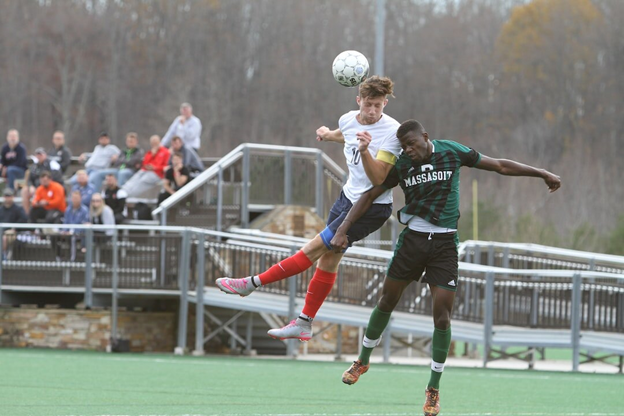BLOG
Modern Concussion Treatment in Chilliwack

The field of concussion research has rapidly grown in the last two decades. With increased media attention, people are starting to take concussion injuries more seriously. As things progress, it’s important for both practitioners and patients to update their knowledge on how to best approach navigating a concussion injury. This allows for quicker recoveries, safer return to play decisions, and reduced risk of ongoing or additional injuries while healing from a concussion.
Out with the old
The days of resting in a dark room until symptoms resolve are long gone. Over-resting has been associated with ongoing concussion symptoms, not as a treatment. Studies show that relative rest is important for the first 1-2 days (think light cognitive activity, limited screens, limited physical activity), but that following a gradual return to activity protocol to build on this as soon as possible is important.
The idea that rest alone should resolve symptoms has also been disproven. Newer studies show that 30-40% of people experience symptoms beyond 2-4 weeks. In these situations, people are unlikely to see significant symptom relief with time and rest alone. Research shows that the most effective way to combat ongoing symptoms is to identify specific sources of dysfunction through concussion-specific testing and to stimulate each area with targeted exercises.
In with the new
If you follow a return to activity protocol and symptoms stick around beyond 2-3 weeks, then concussions-specific testing is strongly recommended. This tests the four most common sources of post-concussive symptoms: neck, vision, vestibular, and physiology related dysfunctions. By testing these areas you can not only find the cause of ongoing symptoms, but know what to do about it by stimulating the right areas to heal. One example might be trouble with your neck or visual functions that don’t seem to clear up on their own, but that resolve very well when discovered and isolated with the right exercise program.
On the field & sidelines
Because of increased concussion injury awareness, athletes are being pulled from play with much more caution and care. This is a definite positive step in the right direction, but there are still many players who are not pulled from play and go on to worsen their existing concussion. Research shows that one symptom following a sudden acceleration-deceleration mechanism should warrant pulling a player for assessment. Symptoms after contact seem to be the most accurate guide compared to any testing when making these decisions. Some simple tests may be done on the sidelines, but they only have value if a concussion is suspected but no symptoms are present. In other words, it is not advised to send anyone with new symptoms back on the field just because their tests look good. Baseline testing is also an option for some people, though it is not needed for practitioners to diagnose a concussion. On the sidelines, certain baseline tests may be helpful if there are no symptoms and you want to be on the safe side before sending them back in following contact. The newest research shows that baseline testing seems to be more valuable to help concussion rehab professionals make safer return to play decisions.

Return to play
When returning to high risk work or sport after a concussion, the main concern is how prone we are to making an existing concussion worse, or in the worst case scenario taking a mild traumatic brain injury (aka a concussion), and turning it into a permanent brain injury by suffering a second concussion while still healing from one. There is evidence that although 60-70% of people’s symptoms resolve by 2 weeks, full physiologic brain healing does not occur until closer to 3-4 weeks (the specific timeline varies per person). Returning to play after symptoms have resolved but before full brain healing places an individual at a significantly higher risk of worsening your current concussion, or having a second one (if a second concussion occurs, it is often within 2 weeks of the first one).
What all this means is that symptoms alone are a poor guide in making return to sport decisions. Studies done on college athletes shows that returning to play as soon as symptoms resolve often leads to a concussion now taking 3-6 months to resolve, instead of a more expected 3-4 weeks. Researchers recommend taking around one month for full healing, and ideally doing concussion-specific testing for a more objective return to play clearance. If returning after 2 weeks is desired, then concussion-specific testing (neck, vision, vestibular, physiology testing) is strongly recommended to make sure there are no lingering dysfunctions. If an athlete is symptom free and tests well, then they can return to play reassured that they are very unlikely to cause additional injury or prolong their healing. In either case if symptoms persist, then return to play is not advised and concussion specific testing and rehab is likely to be needed in any case.
Learn more about Optimum Sport’s approach to Concussion Management:
Go to https://optimumclinic.ca/treatment/ – > Concussion Management
Who Offers These Services In Chilliwack:
Dr. Cornelius van de Wall, BSc, DC, CCMI Certified (Complete Concussion Management)
Learn more about Concussion Care at Dr. van de Wall’s website. (link is: https://www.drcorneliusvandewall.com/concussion-program)
Interested in concussion care or baseline testing?
Please contact the clinic at 604-703-6470 or info@optimumclinic.ca for more information.




